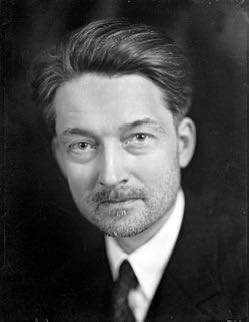Jacques Maritain (1882–1973) was a French philosopher widely regarded as one of the most important Catholic thinkers of the 20th century. His work focused on reconciling faith and reason, ethics and politics, as well as promoting a humanism rooted in Christian values.
Born in Paris, Maritain initially studied natural sciences at the Sorbonne, where he met his future wife, Raïssa Oumansoff. Together they converted to Catholicism in 1906, an event that profoundly shaped both their personal and intellectual lives. Influenced by the works of St. Thomas Aquinas, Maritain became one of the main figures of the Thomistic revival in modern philosophy.
Maritain’s philosophy centered on the belief that true human progress can only be achieved through spiritual and moral development. He argued that democracy and human rights must be grounded in the dignity of the human person — a dignity given by God. His ideas played a significant role in shaping the Universal Declaration of Human Rights (1948), where his influence can be clearly traced.
Among his most notable works are Art and Scholasticism (1920), Integral Humanism (1936), and Man and the State (1951). In these writings, Maritain emphasized the harmony between reason and faith, and the importance of integrating Christian ethics into modern social and political life.
Throughout his life, Jacques Maritain remained a strong advocate of peace, justice, and intellectual freedom. His vision of a “Christian humanism” continues to inspire philosophers, theologians, and educators around the world. He believed that every person, created in the image of God, has an inherent value that must be respected and protected in all aspects of life.

